Underside of the engine room hatches:
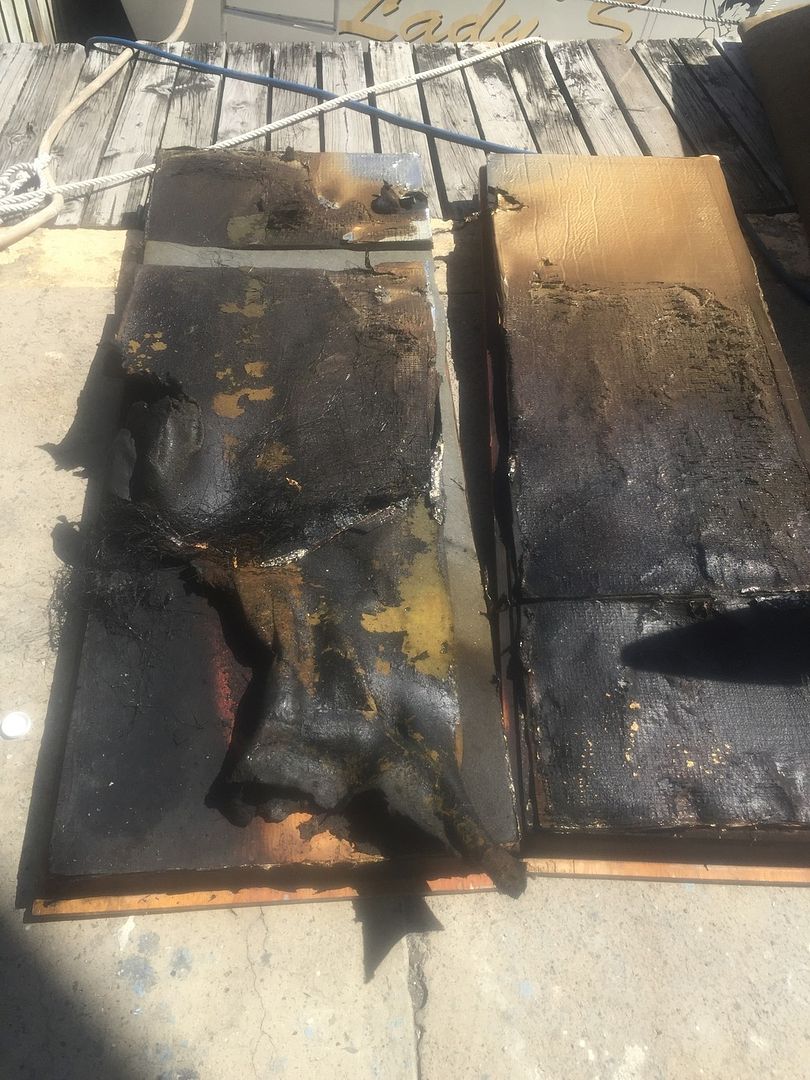
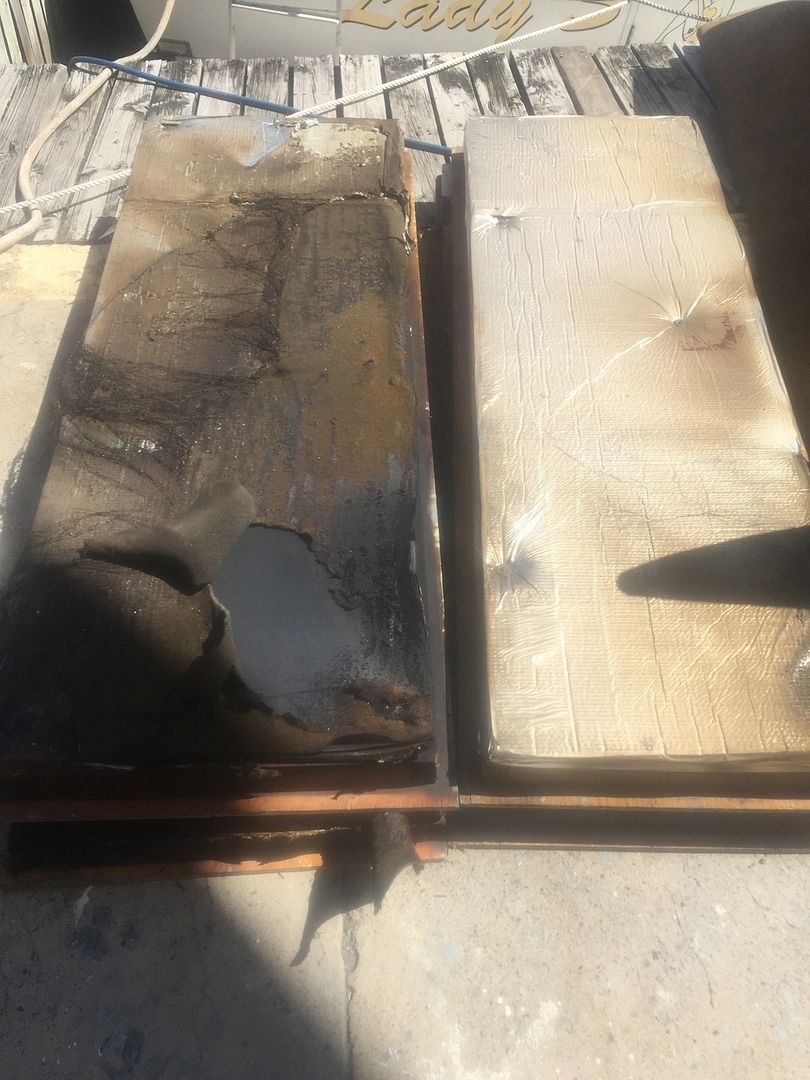
The hot spot:
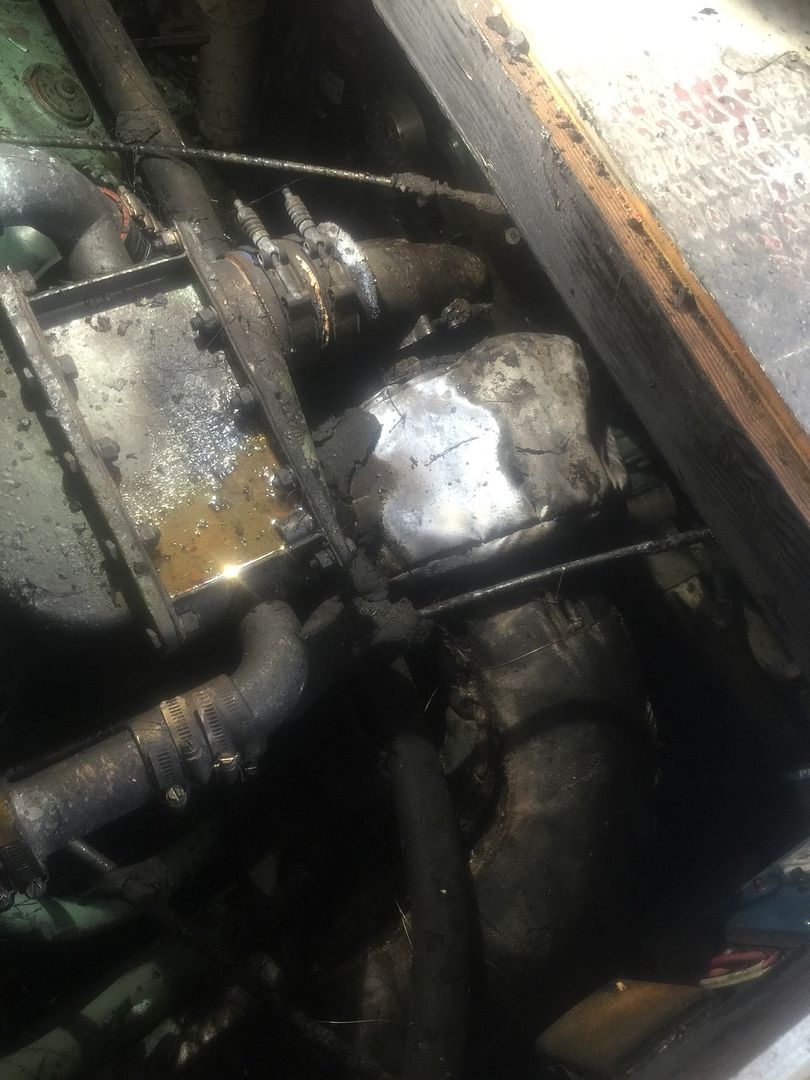
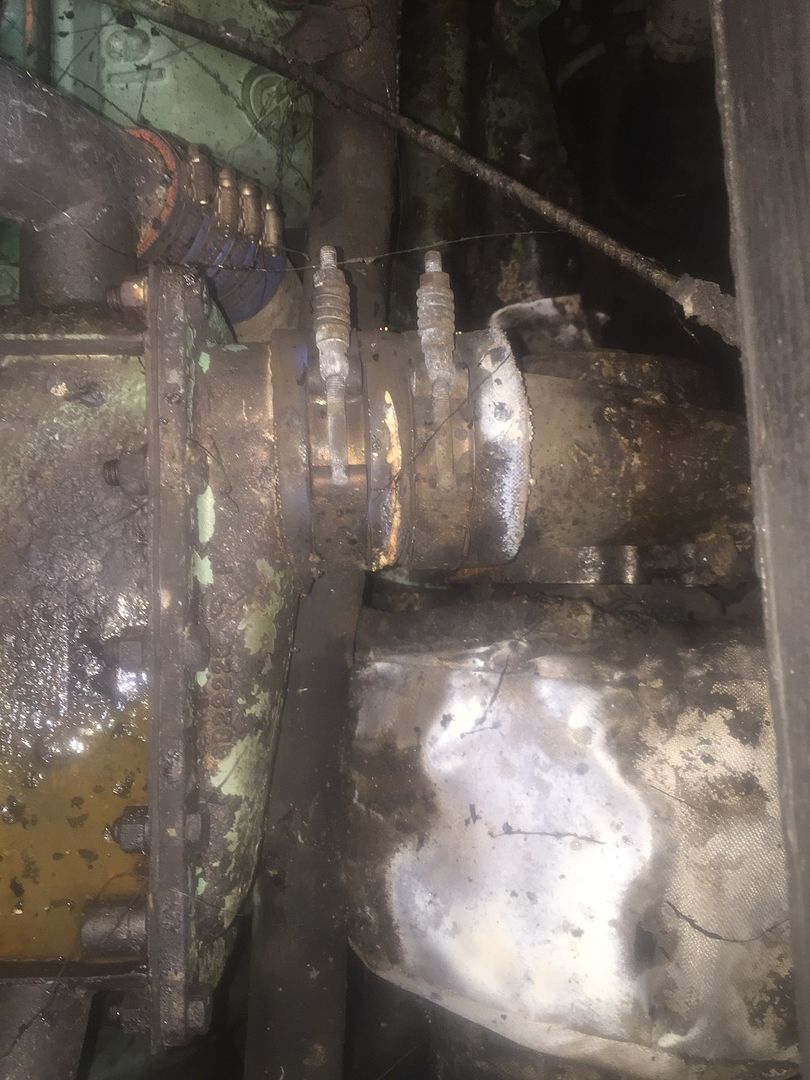
Melted K&N air filter:
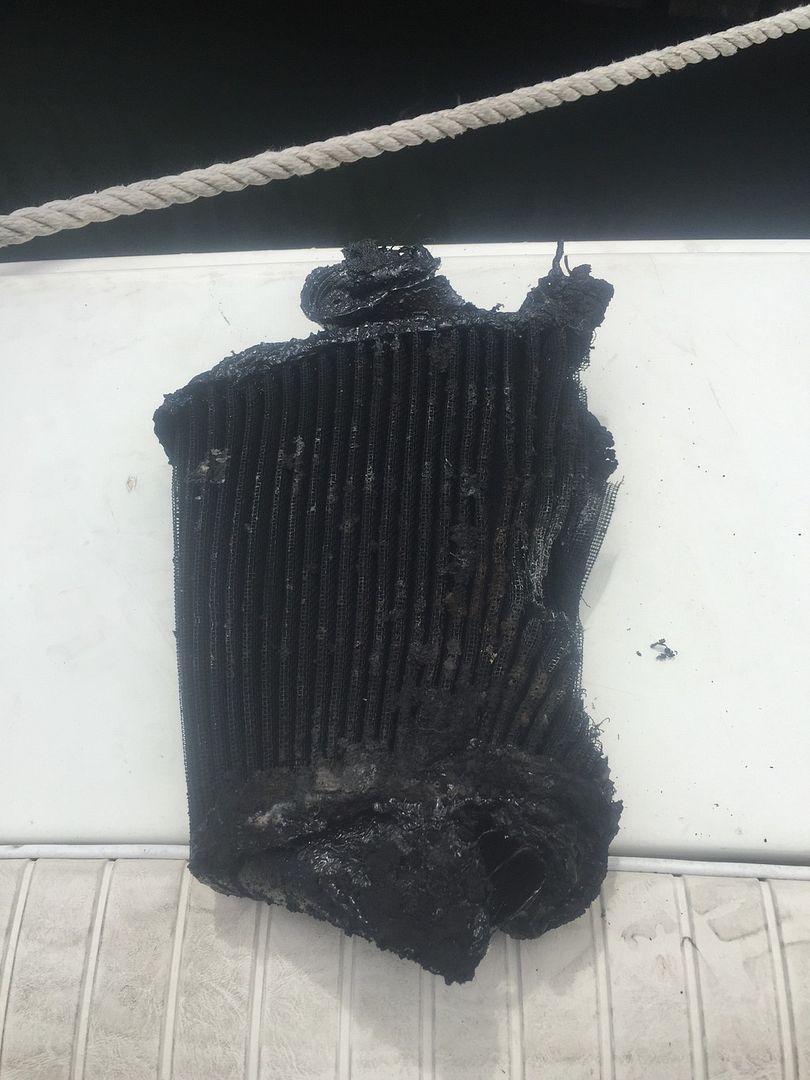
The reason for the fire:
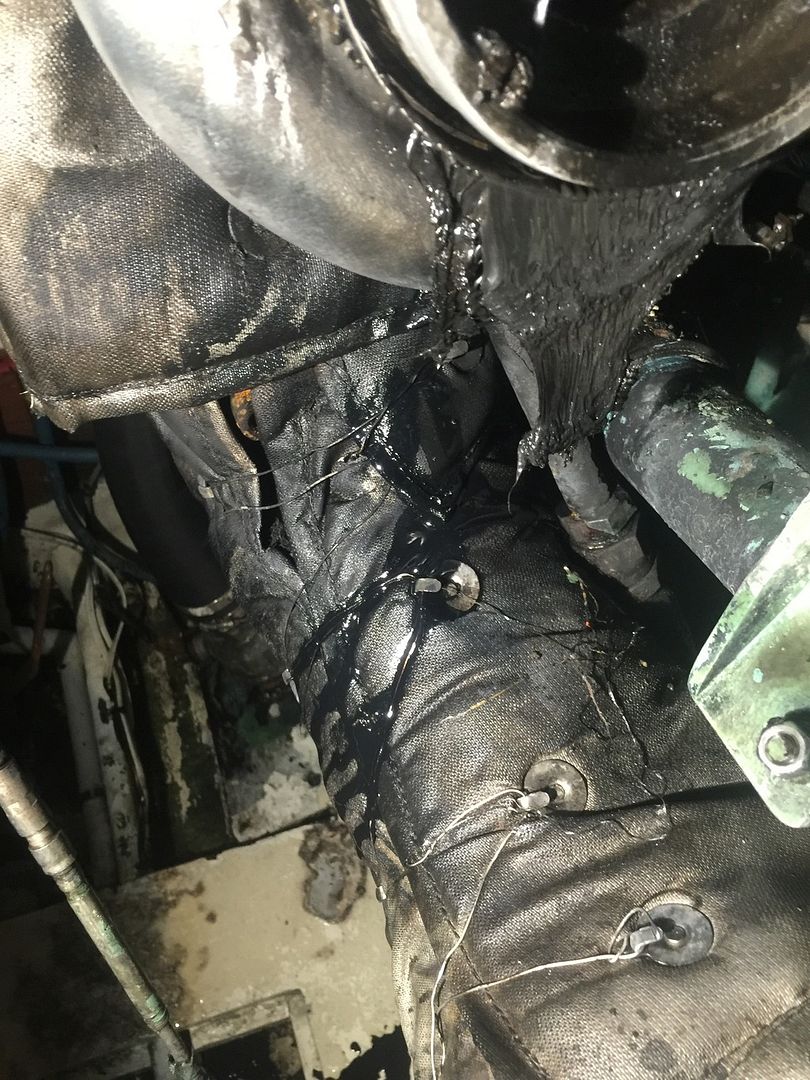
The cleanup and repair consisted mostly of cleaning the engine room from the soot and repairing the hatches... I was quite surprised to learn that the hatches are hollow... I decided to fill the hollow space with sound & thermal insulation... I used perforated Masonite (a.k.a. "Pegboard") as the covering layer... I wanted to use perforated aluminum sheet but it's not available in PR... The Pegboard will do until I can lay my hands on perforated aluminum...
"Peeled" hatch:
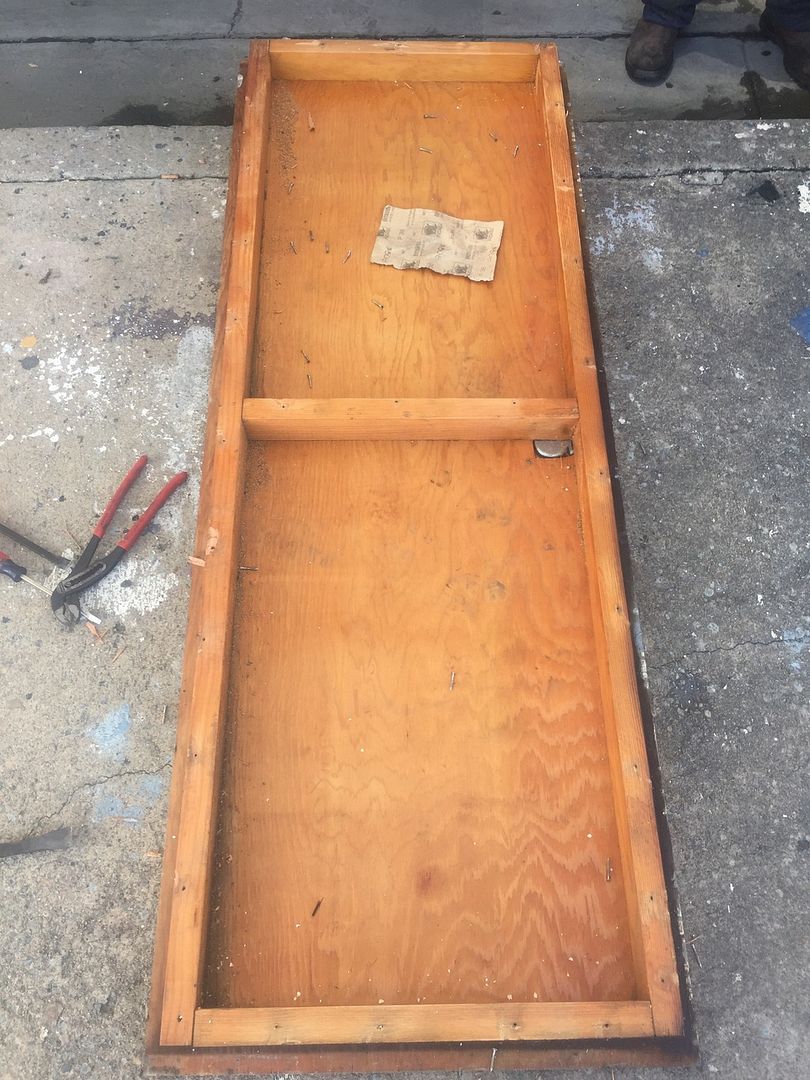
"Stuffed" hatch:
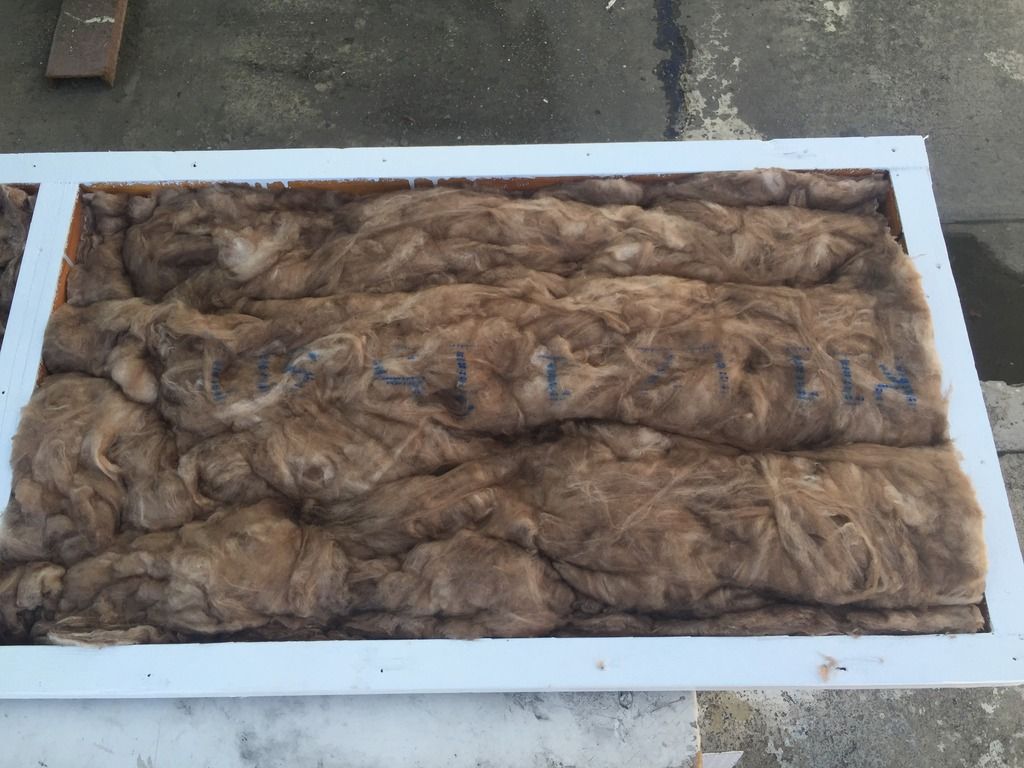
Finished hatch:
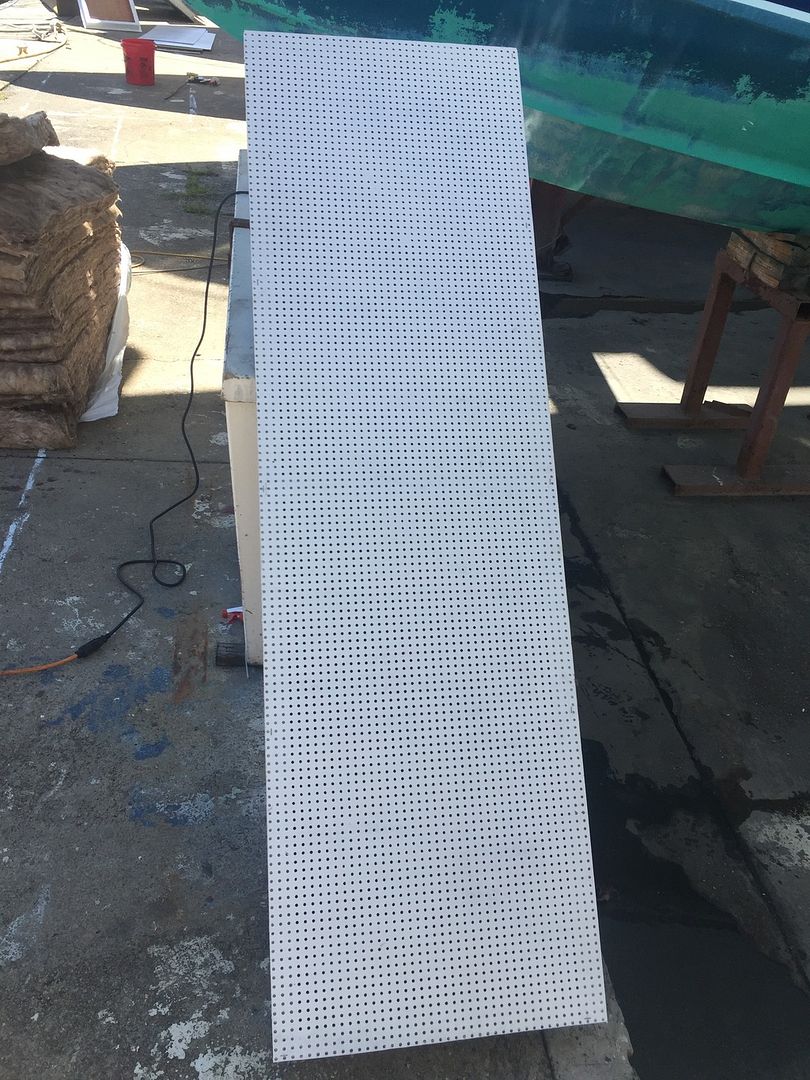
Next thing to do will be to replace the cracked oil return line, replace all 4 air filters, replace a couple of hoses and to degrease the exhaust heat blanket... It's currently still soaked in oil and will fire up again when exposed to heat... A little paint here and there will complete the job...
It should be noted that although in my case, and very much due to a functioning FireBoy system, the damage was very limited, I know somebody personally who's had a similar occurrence and the boat was a total loss!!! It was a 40' Post with 6V71's and it was the oil supply hose that went south but otherwise it was an identical incident... Albeit with a sad ending...
